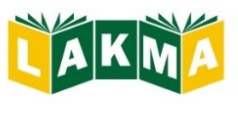
BIODATA
Vilma BAČKIŪTĖ works for the Lithuanian Ministry of Education and Science, where her responsibilities include language education policy and leadership in education issues. She has extensive experience in project management and EL teacher training, including CLIL. In 2002 – 2012, Vilma worked as a partnerships and projects manager for the British Council in Lithuania. In 2013 she coordinated the programme on leadership in education within the Lithuanian Presidency 2013 of the Council of the EU. In addition, she is part of the EC thematic work groups and actively participates in European and national networks working in multilingual and language education.
PLENARY (joint presentation with Vilma Bijeikienė and Lilija Vilkancienė)
The Interface Between Competence-based Education and CLIL
A priority area within the Education & Training 2020 agenda (EU) is to promote learning mobility for all learners at all levels of education and training. Language skills are important prerequisites for increasing employability and competitiveness. There is an obvious need for innovative methods for developing transversal skills, including language, for better career opportunities. Content and Language Integrated Learning might be the key. CLIL’s most iconic phrase, ‘Using languages to learn and learning to use languages’ is relevant to increased opportunities for employment.
Improving the outcomes of education and training by investing in competence-based approaches and promoting language skills in particular can only happen if we provide an appropriate educational environment.
In Lithuania, CLIL was considered as a methodology through several projects implemented at the national level since 2003. This talk attempts to reflect on the Lithuanian context and practice that benefited from the projects (2003 – 2013) and in the light of changing demands and expectations for education, including policy dialogue at the interface between competence-based education and CLIL.
